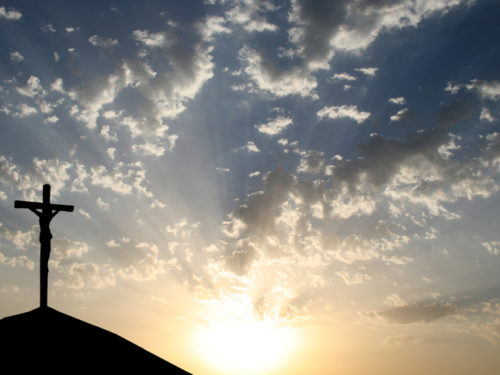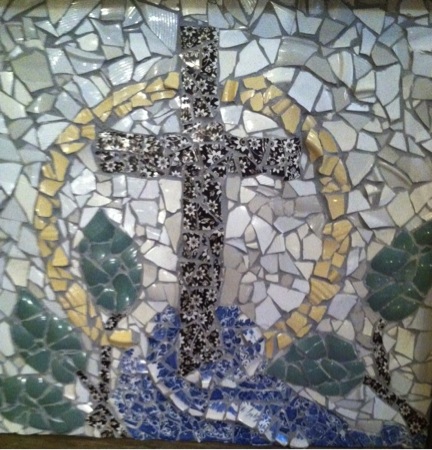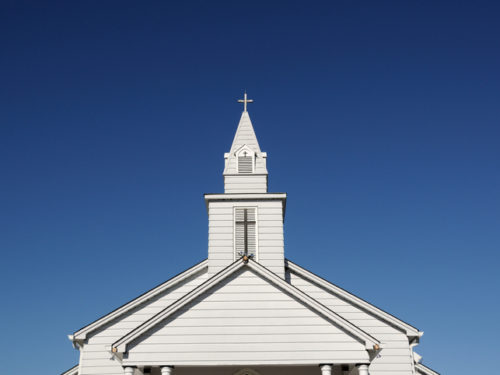 Uncategorized
Uncategorized
In light of the multiple thousands of denominations existing over and against Je...
 Uncategorized
Uncategorized
By: ECO Team
For as long as I’ve served in ministry, unflappability has been a core aspect of my pastoral identity. Or, I should say that was a core aspect of my pastoral identity—until Holy Week 2013. That date will stand out in my memory as the time I was officially flapped.
The whole year leading up to this time was an especially difficult time for the church and for me. I had dealt with numerous divorces throughout my ministry and had always found them to present some of the more difficult pastoral challenges. But this particular year, the sheer quantity of divorces and troubled marriages was unusually high. And the marriages in crisis were not at the periphery of our church, but right in the center with elders, staff, and lay leaders directly involved.
Through the summer and fall of 2012, we were dealing with almost a dozen marriages that were imploding or heading in that direction. Things seemed to have stabilized as we moved into 2013, but we were still reeling from the shock and we were trying to learn how to navigate the radically altered relational landscape.
I had thought Easter might provide an ‘inbreaking of the Kingdom’ moment that would bring much needed healing as well as a return of hope and trust in our midst. But three days before Easter, I got a call from one of my lay leaders that his wife was leaving and wanted a divorce.
This was the point at which my unflappability streak officially ended. Not only did this fresh wave of pain and heartbreak hurt deeply, but also, because of the way divorce can fracture the community in multiple ways, I wasn’t sure I could bear this weight alone.
I had a week of post-Easter vacation scheduled and while I spent most of this time enjoying my family, I devoted the early morning hours to praying and asking God to show me how to respond to this crisis. While I didn’t get a crystal clear answer, I did feel as if I got some contours of a response from the Lord. It consisted in two elements:
Based on this general mandate and a few concrete ideas loosely drawn from the Old Testament playbook, I called the Elders together and presented my plan. It consisted in two parts.
The first was a Solemn Assembly. I asked the Elders to call a Solemn Assembly for a Sunday night in May. Using Joel 2:12-17 as a rough guide, we put together a service that provided a context for us to express our grief and to repent before the Lord. I encouraged those who were able to prepare for the service by fasting for 24 hours before it began.
The first part of the service began with grieving. We placed a small table in the center of the sanctuary with a few pieces of pottery on it. I read Psalm 13 out loud and in between stanzas I prayed a prayer naming some of our grief while someone else took a hammer and smashed a piece of pottery. After the smashing of four pieces, I invited each person to take a shard of pottery to represent their grief and bring it to the baptismal font as a reminder that our status before God is not fragile and God brings life out of death.
The second part of the service focused on repentance. We read passages aloud from the Bible that named sins of the flesh as well as sins of the spirit and then we had a long time of silence to ask the Spirit to search our hearts. I invited people to try to write their sins on an index card. After that, I invited anyone who felt called to confess their sins before the whole body. I began the process by confessing my tendency to be the priest in the Good Samaritan story—always looking to cross the road rather than get involved. Others followed suit.
Next, I led an assurance of pardon and invited everyone to the Lord’s Supper. As we made our way to the elements, we all passed by a large wooden cross and on it we pinned the cards on which we had written our words of confession. We ended the service by leaving in silence.
The second part of the plan was to declare the next year a Year of Jubilee. We had been running two worship services on Sunday (traditional and contemporary) and a Wednesday evening dinner program. For this year, we decided to cancel our Wednesday evening program and combine the two services into one. The idea was that we would all give up some territory (style of music, favorite tradition, pet program) in order to return to our ancestral land (i.e. focus on being a church family).
The Year of Jubilee began in June of 2013. The call to worship that day was Revelation 22:1-5 and during the service we unveiled a mosaic depiction of the river, the tree of life, and the leaves for the healing of the nations made out of shards of pottery from the Solemn Assembly. Normally, an emotionally reserved person, I was overcome with emotion and wept as I tried to read the call to worship.
Starting in September, we began a preaching series on The Story, which is a 31-week journey through the Bible from beginning to end. This was our way of inviting the Lord to speak clearly to us as we focused on getting into the right posture. Throughout the year, we’ve been combining traditions from both of our former worship services to create one single service that’s guaranteed to have something for everyone to dislike. But the amazing thing is, throughout this year, we’ve had very few complaints about these kinds of details. We literally decide five minutes before the service starts whether we are going to wear robes or not, and so far no one has even mentioned it.
This last week, we reached the end of our Year of Jubilee as we gathered for a weekend Family Camp. It was a joyous and poignant time. At one point during the weekend, the clouds parted and we heard an audible voice from the Lord saying, “my people, you have finally adopted the right posture before Me, what I want you to do specifically in response to this difficult season in your life together is…”
Actually, we didn’t hear an audible voice from the Lord. I really wish we had and that I could have filled in the rest of that sentence. But what I can say is this: I no longer feel as if I am shouldering this burden alone. The answers aren’t coming easily, but I feel a much stronger sense of community as we are slogging through whatever is happening to us and among us together. And I have a greater confidence that God is faithful and there’s truly nothing we can do to throw Him for a loop. And even though we still don’t know exactly what the Lord wants us to do next, I think we proved to ourselves that we are willing to set aside the things that are comfortable for us in order to do whatever it is He wants us to do.
My streak was broken. I can no longer claim unflappability. But what I got in exchange was this Year of Jubilee and all things considered, I think I came out way ahead.
 Uncategorized
Uncategorized
In light of the multiple thousands of denominations existing over and against Je...
 Uncategorized
Uncategorized
My first pastoral call was to the First Presbyterian Church of Winnfield, a litt...
 Uncategorized
Uncategorized
This semester, I’m teaching “The Holy Spirit and the Church.” Our primary textbo...